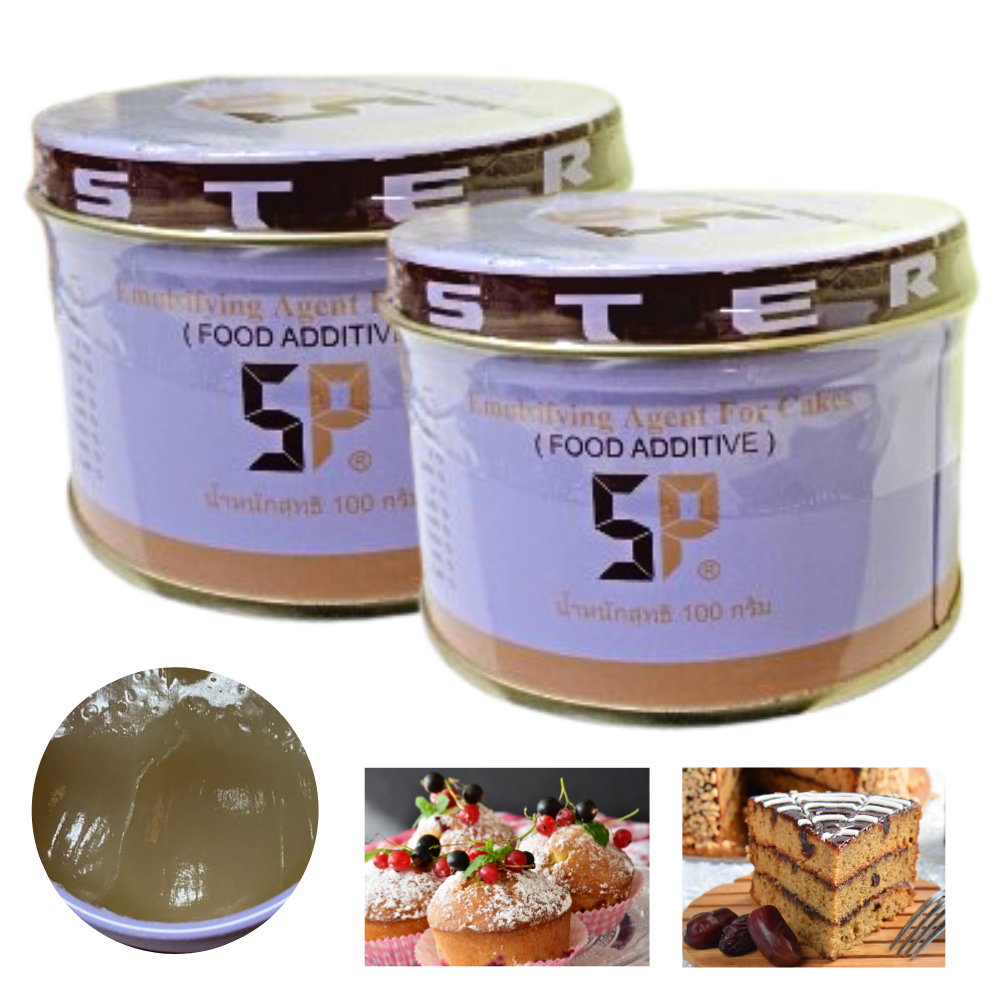Find out Just How an Emulsifier in Food Can Help Achieve Flawlessly Mixed Dishes Every Time
Emulsifiers are necessary active ingredients in the cooking globe, allowing the mixing of oil and water-based elements. Their ability to minimize surface area tension enables the creation of secure mixtures, boosting both structure and flavor in numerous meals. Understanding just how these compounds function can transform the way one comes close to food preparation. Lots of stay not aware of the various types of emulsifiers and their details applications. Exploring this topic discloses important understandings for attaining culinary excellence.
What Are Emulsifiers and How Do They Function?
Emulsifiers play a vital role in the food market by making it possible for the stable mixing of components that commonly do not integrate, such as oil and water. These materials have both hydrophilic (water-attracting) and hydrophobic (water-repelling) properties, permitting them to communicate with both kinds of ingredients. When an emulsifier is contributed to a combination, it reduces the surface area tension between the oil and water, promoting the formation of little beads of one liquid spread within the other. This process produces a steady emulsion, stopping splitting up over time and improving structure and mouthfeel. Emulsifiers are basic in different food, from salad dressings to gelato, guaranteeing consistency and high quality. They also add to the total sensory experience of food, affecting taste launch and aesthetic allure. Comprehending exactly how emulsifiers work is necessary for food scientists and chefs alike, as they endeavor to develop well balanced and pleasurable culinary experiences.
Usual Kinds of Emulsifiers Used in Cooking
Countless sorts of emulsifiers are used in cooking to attain wanted structures and stability in different foodstuff. Usual emulsifiers include lecithin, which is naturally discovered in egg yolks and soybeans, and is commonly used in mayo and dressings. An additional prevalent emulsifier is mustard, which has substances that help mix oil and water in sauces.
In addition, business emulsifiers such as mono- and diglycerides are usually contributed to processed foods to improve their security and improve service life. Starch-based emulsifiers, stemmed from corn or potatoes, are also utilized in gravies and puddings for thickening and structure. Casein, a milk healthy protein, serves as an emulsifying representative in dairy items like cheese and lotion. Each of these emulsifiers plays a crucial role in making certain that ingredients mix seamlessly, supplying the preferred uniformity and flavor in culinary productions.
The Scientific research Behind Emulsification

The stability of an emulsion relies upon the balance in between the forces acting on the dispersed droplets. If the droplets integrate, the solution can damage, resulting in separation. Numerous aspects, such as temperature, concentration of the emulsifier, and the approach of blending, affect the success of emulsification. Recognizing this clinical foundation is necessary for attaining consistent cause culinary applications including solutions.
Tips for Utilizing Emulsifiers in Your Recipes
When integrating visit this web-site emulsifiers into dishes, mindful factor to consider of their properties and capability can considerably boost the end product. First, one must select the ideal emulsifier based upon the desired appearance and stability of the meal. Emulsifier In Food. Typical alternatives consist of lecithin, mustard, and egg yolks, each offering one-of-a-kind advantages
It's important to understand the temperature level at which the emulsifier functions finest; for instance, some emulsifiers function successfully at room temperature level, while others require warmth. Slowly including oil to the emulsifier while whisking can assist create a steady solution.
Additionally, the proportion of emulsifier to liquid is crucial; too little may cause splitting up, while way too much can develop an undesirable structure. Proper storage problems ought to be considered, as some emulsified items may require refrigeration to keep security and quality. By complying with these ideas, cooks can accomplish constantly well-blended dishes.

Delicious Recipes Featuring Emulsifiers
While several chefs may not understand it, including emulsifiers right into dishes can boost meals to new heights of taste and structure. As an example, a classic vinaigrette benefits greatly from the addition of mustard, which acts as an emulsifier, providing a smooth uniformity that binds oil and vinegar perfectly. Similarly, homemade mayo showcases the power of egg yolks, creating a creamy, elegant sauce perfect for sandwiches and salads.
In cooking, emulsifiers like lecithin can assist attain a tender crumb in cakes and muffins, improving moisture retention. An abundant delicious chocolate ganache, made with hefty cream and delicious chocolate, can additionally include an emulsifier to keep a silky finish. In addition, ice creams frequently make use of emulsifiers to ensure find out a creamy appearance and protect against ice crystal formation, causing a delightful dessert experience. By incorporating these emulsifying agents, chefs can produce recipes that delight the taste buds and give a satisfying mouthfeel.
Often Asked Questions
Are Emulsifiers Safe for Individuals With Food Allergies?
Emulsifiers can be secure for individuals with food allergies, relying on the details emulsifier used. Cross-reactivity and specific sensitivities vary; subsequently, getting in touch with a medical care professional is advisable to assure security.
Can I Make My Very Own Emulsifier in the house?
Yes, people can develop homemade emulsifiers utilizing ingredients like egg yolks, mustard, or honey. These natural choices can effectively mix oils and water-based components, using an easy service for numerous culinary applications.
Just How Do Emulsifiers Affect the Nutritional Value of Food?
Emulsifiers can improve the dietary worth of food by boosting nutrient absorption and security. Nonetheless, extreme intake may lead to unfavorable effects, potentially altering digestion procedures and impacting digestive tract wellness in delicate individuals.


Are There Any Type Of Unfavorable Side Results of Consuming Emulsifiers?
Some researches recommend that eating emulsifiers might lead to gastrointestinal concerns or interfere with digestive tract microbiota equilibrium. More study is needed to completely understand their long-lasting results on health and wellness and possible unfavorable side results.
Can Emulsifiers Change the Taste of My Dishes?
Emulsifiers can discreetly alter the taste account of dishes. By improving structure and mouthfeel, they might make flavors much more pronounced or well balanced, however they commonly do not impart strong preferences by themselves.
Emulsifiers play a vital role in the food sector by making it possible for the stable blending of ingredients that generally do not combine, such as oil and water. Many types of emulsifiers are utilized in cooking to attain wanted structures and stability in various food items. In visit our website addition, industrial emulsifiers such as mono- and diglycerides are typically included to refined foods to boost their stability and improve rack life. It's necessary to comprehend the temperature at which the emulsifier operates finest; for instance, some emulsifiers work efficiently at area temperature level, while others need heat (Emulsifier In Food). Emulsifiers can be secure for individuals with food allergies, depending on the specific emulsifier utilized